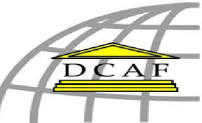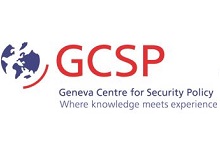Contemporary Challenges to Peace and Security in Cyberspace
The Geneva Centre for the Democratic Control of Armed Forces (DCAF), the Geneva Centre for Security Policy (GCSP), and the Geneva Internet Platform (GIP) will present Contemporary Challenges to Peace and Security in Cyberspace as a part of Geneva Peace Week. The event will take place on Thursday, 19 November at 10:00 at the WMO/OMM, Salle Kreuzel, 2nd floor.
Cyberspace constitutes a complex environment. It encompasses not only the Internet or mobile phones but a whole range of critical infrastructure, vital for the well-functioning of a society. These new tools are offering infinite opportunities for information sharing and gathering, democratic participation, and eventually furthered human development. However, the increased reliance on them has led to new challenges and vulnerabilities. Malicious operations, taking various forms, are increasing. States are facing difficulties in adopting existing legislation to these new challenges. As a result, democratic oversight is often very challenging. Cyberspace requires cooperation between States, international organisations, business entities and individuals in order to achieve an open, secure and peaceful cyberspace, where the rule of law and human rights are respected and protected.
This event aims to analyse the current challenges to peace and security in cyberspace and offers an overview of the current debate.
The event, which is part of the Cybersecurity Days, is indispensable for anyone who is interested in the ongoing discussions in cyberspace, with regard to the application of international law, Internet governance, and responsibilities by Governments, business entities and individuals.
Moderator:
Anne-Marie Buzatu, Geneva Centre for the Democratic Control of Armed Forces (DCAF)
Anne-Marie Buzatu is Deputy Head of DCAF’s Operations IV division (Public-Private Partnerships). Her areas of expertise include multi-stakeholder governance initiatives, business and security sector reform and emerging challenges to human rights and security policy posed by private commercial actors, new technologies and the digital domain.
Panellists:
Nilz Melzer, Swiss Federal Department of Foreign Affairs
Nils Melzer is Senior Adviser to the Security Policy Division of the Political Directorate at the Swiss Federal Department of Foreign Affairs. Before that, he worked as a Senior Fellow at GCSP and as a Legal Advisor for the ICRC. He held the Swiss Chair for International Humanitarian Law at the Geneva Academy and was Research Director of the Centre for Business and Human Rights at the Faculty of Law of the University of Zürich.
Reto Haeni, Microsoft Switzerland
Reto Haeni is Microsoft’s Chief Security Officer for Western Europe and responsible for cybersecurity overall. He is the internal and external focal point for security and coordinates security teams in the different countries and is the crisis management lead for software security incident response.
Jovan Kurbalija, DiploFoundation
Jovan Kurbalija is the founding director of DiploFoundation and Head of the Geneva Internet Platform. He directs online learning courses on ICT and diplomacy and lectures in academic and training institutions. His main areas of research are, among others, the international Internet regime and the use of hypertext in diplomacy and online negotiations.
Gustav Lindstrom, Geneva Centre for Security Policy (GSCP)
Gustav Lindstrom is the Head of the Emerging Security Challenges Programme at GCSP. He received a doctorate in Policy Analysis from the RAND Graduate School and M.A. in International Policy Studies from Stanford University. His areas of interest and expertise are, among others, emerging security challenges and cyber security.
For registration, please send an email to Teresa Hatzl, t.hatzl@dcaf.ch



